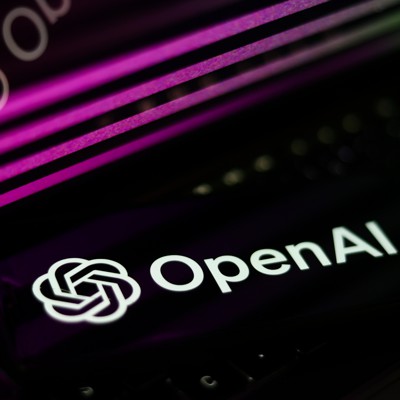OpenAI's ChatGPT: The FTC's Probe And Future Of AI Regulation

Table of Contents
The FTC's Investigation into ChatGPT and OpenAI
The FTC's investigation into OpenAI and ChatGPT centers around several key areas, focusing on potential violations of consumer protection laws and data security practices. The investigation is examining whether OpenAI's data handling practices comply with existing regulations such as the California Consumer Privacy Act (CCPA) and the General Data Protection Regulation (GDPR).
-
Data Security Concerns: The FTC is likely scrutinizing OpenAI's security measures to protect the vast amounts of data used to train ChatGPT. Breaches could lead to significant consumer harm, exposing personal information and potentially violating data privacy laws.
-
Deceptive Trade Practices: The investigation is also assessing whether ChatGPT's outputs are misleading or deceptive. This includes considering the potential for the model to generate false or biased information, impacting consumers' decisions and potentially constituting deceptive trade practices.
-
Consumer Protection Violations: The FTC is examining whether OpenAI adequately informed users about the potential risks associated with using ChatGPT, particularly regarding data privacy and the potential for inaccurate or biased information. Failure to adequately disclose these risks could constitute violations of consumer protection laws.
-
Potential Penalties: Depending on the findings of the investigation, OpenAI could face substantial penalties, including fines, mandated changes to its data practices, and even limitations on its AI model's capabilities. The outcome of this investigation will set a significant precedent for other AI developers.
Key Concerns Driving AI Regulation
The rapid development and deployment of AI models like ChatGPT have highlighted several critical ethical and societal concerns that necessitate robust regulation.
-
Algorithmic Bias and Fairness: AI models are trained on vast datasets, which may reflect and amplify existing societal biases. This can lead to discriminatory outcomes in areas such as loan applications, hiring processes, and even criminal justice. Regulation is needed to ensure fairness and mitigate algorithmic bias.
-
Misinformation and Deepfakes: ChatGPT's ability to generate realistic text has raised concerns about the spread of misinformation and the creation of deepfakes. These technologies can be used to manipulate public opinion, damage reputations, and even incite violence. Stronger regulations are needed to combat the malicious use of generative AI.
-
Data Privacy and Security: Training large language models requires access to massive amounts of data, including personal information. Concerns exist regarding the security and privacy of this data, and regulations must ensure its responsible handling and protection.
-
Accountability and Transparency: The lack of transparency in how AI models make decisions raises concerns about accountability. It is challenging to understand why an AI model makes a specific decision, making it difficult to identify and correct errors or biases. Regulations should promote transparency and accountability in AI systems.
The Future Landscape of AI Regulation: Potential Frameworks and Challenges
The future of AI regulation is evolving rapidly, with various jurisdictions developing their own frameworks.
-
The EU AI Act: The European Union's AI Act is a landmark piece of legislation that seeks to classify AI systems based on their risk level and impose different regulatory requirements accordingly. This provides a potential model for other regions.
-
Global AI Regulation: The need for international cooperation in establishing AI standards is crucial. AI systems do not respect national borders, and consistent global regulation is essential to prevent regulatory arbitrage and ensure ethical AI development worldwide.
-
Self-Regulation and Industry Standards: While government regulation is essential, the AI industry also has a role to play in self-regulation. Industry standards and best practices can help promote responsible AI development and deployment.
-
Challenges in Regulation: Creating effective AI regulation is challenging. Technological advancements often outpace legal frameworks, making it crucial to develop adaptable and future-proof regulatory mechanisms. Balancing innovation with accountability is a key challenge.
Balancing Innovation and Accountability in the AI Age
The development and deployment of AI must be guided by principles of responsible innovation.
-
Ethical AI Development: Developers must prioritize ethical considerations throughout the AI lifecycle, from data collection and model training to deployment and monitoring. This involves actively mitigating biases, ensuring transparency, and promoting accountability.
-
Risk Mitigation Strategies: Strategies for mitigating the risks associated with AI include rigorous testing, validation, and ongoing monitoring of AI systems. Bias mitigation techniques, such as data augmentation and algorithmic fairness methods, are essential.
-
Best Practices: Adopting best practices for ethical AI development, such as incorporating diverse perspectives in development teams and conducting thorough impact assessments, is crucial.
Conclusion
The FTC's probe into OpenAI and ChatGPT signals a crucial turning point in the conversation surrounding AI regulation. The rapid advancement of AI technologies demands a robust and adaptable regulatory framework addressing critical concerns about data privacy, algorithmic bias, and the potential for misuse. Finding a balance between fostering innovation and mitigating risks is paramount. Understanding the implications of the FTC's investigation and the ongoing debate around ChatGPT and AI regulation is vital for everyone. Stay informed about developments in AI policy and advocate for responsible AI development to ensure a future where artificial intelligence benefits all of humanity. Learn more about the implications of ChatGPT and the future of AI regulation.

Featured Posts
-
 The Grand Slam Track League Hope For The Future Of Track And Field
May 11, 2025
The Grand Slam Track League Hope For The Future Of Track And Field
May 11, 2025 -
 Possible Candidates To Succeed Pope Francis A Conclave Preview
May 11, 2025
Possible Candidates To Succeed Pope Francis A Conclave Preview
May 11, 2025 -
 Jeff Bezos Bond Poll The Overwhelming Choice For 007
May 11, 2025
Jeff Bezos Bond Poll The Overwhelming Choice For 007
May 11, 2025 -
 John Wick 5 Beyond The High Table Exploring A Fresh Narrative
May 11, 2025
John Wick 5 Beyond The High Table Exploring A Fresh Narrative
May 11, 2025 -
 Lily Collins Calvin Klein Campaign Image 5133599 Details
May 11, 2025
Lily Collins Calvin Klein Campaign Image 5133599 Details
May 11, 2025
